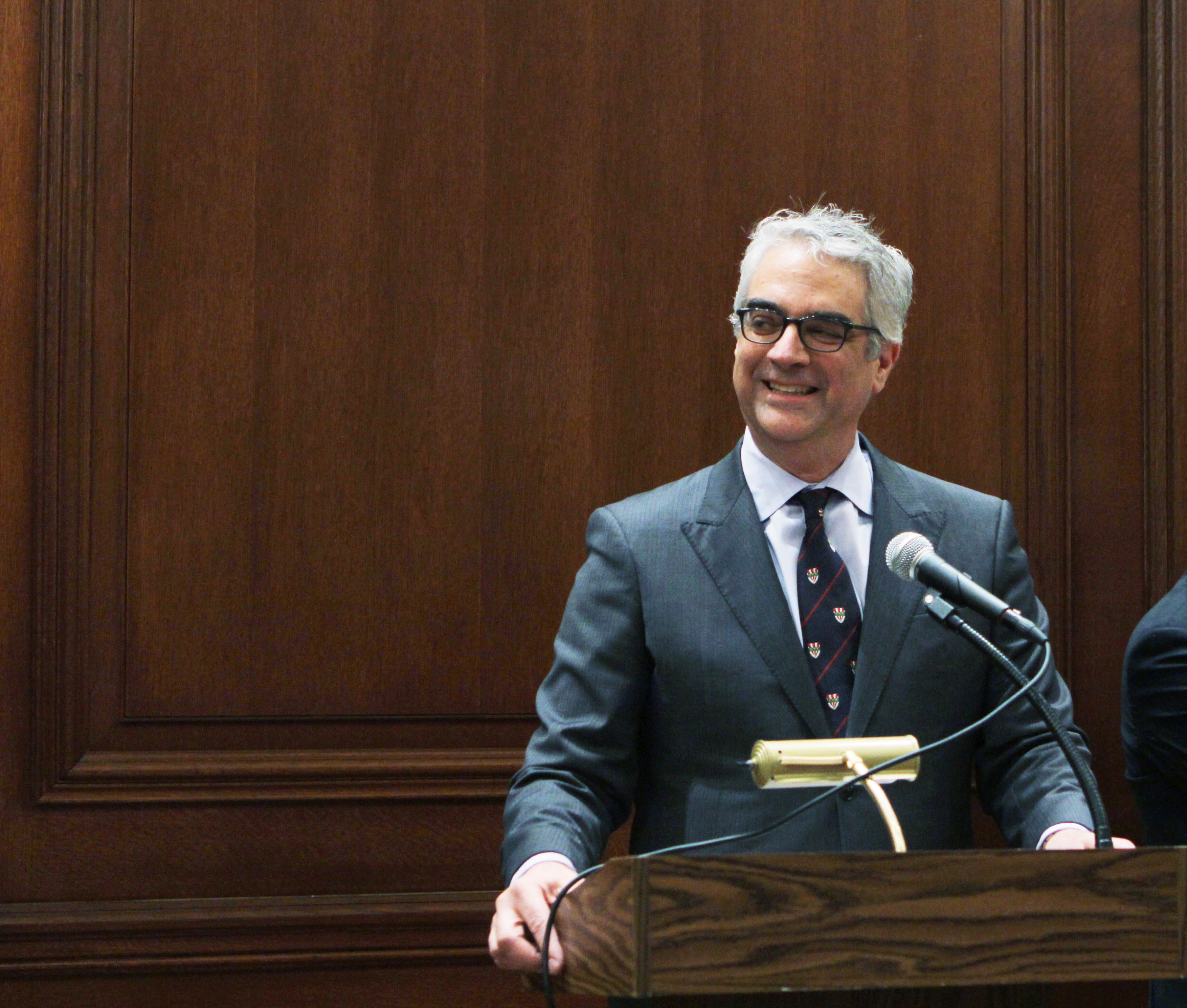
Forty-nine faculty members, including two residential college masters and dozens of senior professors, have signed an open letter defending the controversial email by Silliman College Associate Master Erika Christakis that featured in national headlines over the past month and sparked weeks of campus protests.
The letter, authored by physics professor Douglas Stone, argues that Christakis’ email — which criticized administrators’ efforts to encourage students to be mindful of culturally appropriative costumes — was a modest and reasonable attempt to spur campus debate. It pushes back against students who consider Christakis’ email irresponsible and insensitive and claims that some protesters have “recklessly distorted” the message in order to cast it as an endorsement of racist speech. Next Yale, a newly formed coalition of students of color and their allies, has demanded that Christakis and her husband, Silliman College Master Nicholas Christakis, apologize for the email and resign from their posts.
“The email … did not express support for racist expressions, but rather focused primarily on the question of whether monitoring and criticizing such expression should be done in a top-down manner,” the letter states.
Stone told the News that the Halloween email was a useful contribution to campus discourse and that the Christakises are model faculty members who deserve admiration rather than criticism for their efforts to promote intellectual debate on campus.
Stone added that dozens of his colleagues agreed with the content of the letter but declined to sign it for fear of provoking more controversy.
“We have an obligation to say something reasonable about this,” Stone said. “The silence of so many people in terms of really defending the Christakises has solidified the narrative that they did something wrong.”
The signatories of the open letter include a number of high-profile administrators, such as Calhoun College Master Julia Adams, Saybrook College Master Thomas Near and School of Management Dean Edward Snyder.
Joan Feigenbaum, Computer Science department chair who signed the letter, said students have subjected the Christakises to unfair ad hominem attacks.
“Disagreement is fine,” Feigenbaum said. “However, disagreement does not require verbal abuse.”
The faculty letter has drawn scrutiny from students and professors critical of the Christakises.
Brea Baker ’16, the president of the Yale chapter of the NAACP, said the faculty letter fundamentally misunderstands the responsibilities associated with the mastership of a residential college.
“If the Christakises are more tied to the idea of free speech and positive intent than they are to the impact of their words on the students they are charged with protecting … the roles of master and associate master are not for them,” Baker said.
Gerald Jaynes, professor of economics and African American Studies, said that although he does not believe the Christakises are guilty of racism, he will not sign the open letter because the debate over Erika Christakis’ email is a distraction from more important issues, such as faculty diversity.
Christakis did not return request for comment.
Yale College Dean Jonathan Holloway told the News earlier this month that many faculty members are concerned that student opposition to the Halloween email will have a chilling effect on free speech on campus.
Stone said he holds those concerns, adding that several colleagues warned him that the open letter would make him a target of the ongoing protests.
“It’s not good for our community to feel constraint in our expression of reasonable and relevant views,” Stone said. “That’s unhealthy for Yale.”
Over the last month, the Christakises themselves have become focal points in the campus debate, as students and professors struggle to come to terms with the racially charged incidents still polarizing the University.
In early November, a group of students gathered outside the Christakises’ campus residence demanded an apology for the Halloween email. A video of the incident, in which one of the students can be heard swearing at Nicholas Christakis, provoked an angry social-media backlash from free-speech advocates after it was posted online.
“[The open-letter signers] were very upset about the videos of the public shaming, and the way that Nicholas was treated by that group,” Stone said.
The week before the Thanksgiving recess, Holloway and University President Peter Salovey rejected calls from Next Yale to sanction the Christakises. In an email to the Silliman community, the two administrators announced that the Christakises will remain in their positions, lauding the couple’s “long-standing and deep dedication to undergraduates.”
The faculty letter, released as a public Google document yesterday, praises that decision. It also calls for administrators to adhere to the principles outlined in the 1974 Woodward Report, a foundational document designed to promote free expression at Yale, and endorses widespread demands for the University to improve faculty diversity.
“The letter expresses commitments to stand in solidarity with members of the community harmed by bigotry and to debate our educational policies,” Snyder said.
The open letter is the latest in a series of faculty petitions related to racially charged controversies on campus. Hundreds of faculty members have signed an open letter spearheaded by anthropology professor Douglas Rogers — and co-authored by five faculty members — which was released Nov. 10 affirming their support for minority students.
A short notice posted last week on the website of the Sociology Department expressed support for Nicholas Christakis, but did not mention the Halloween email.







